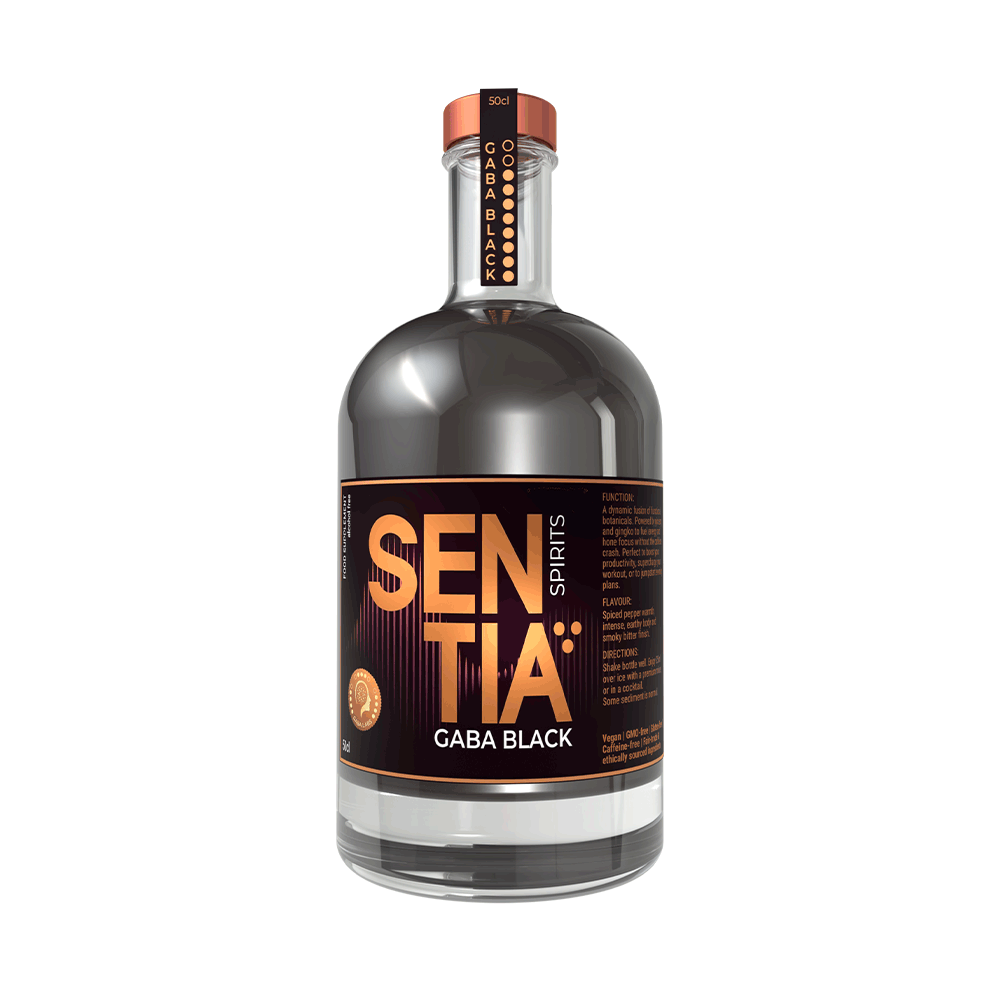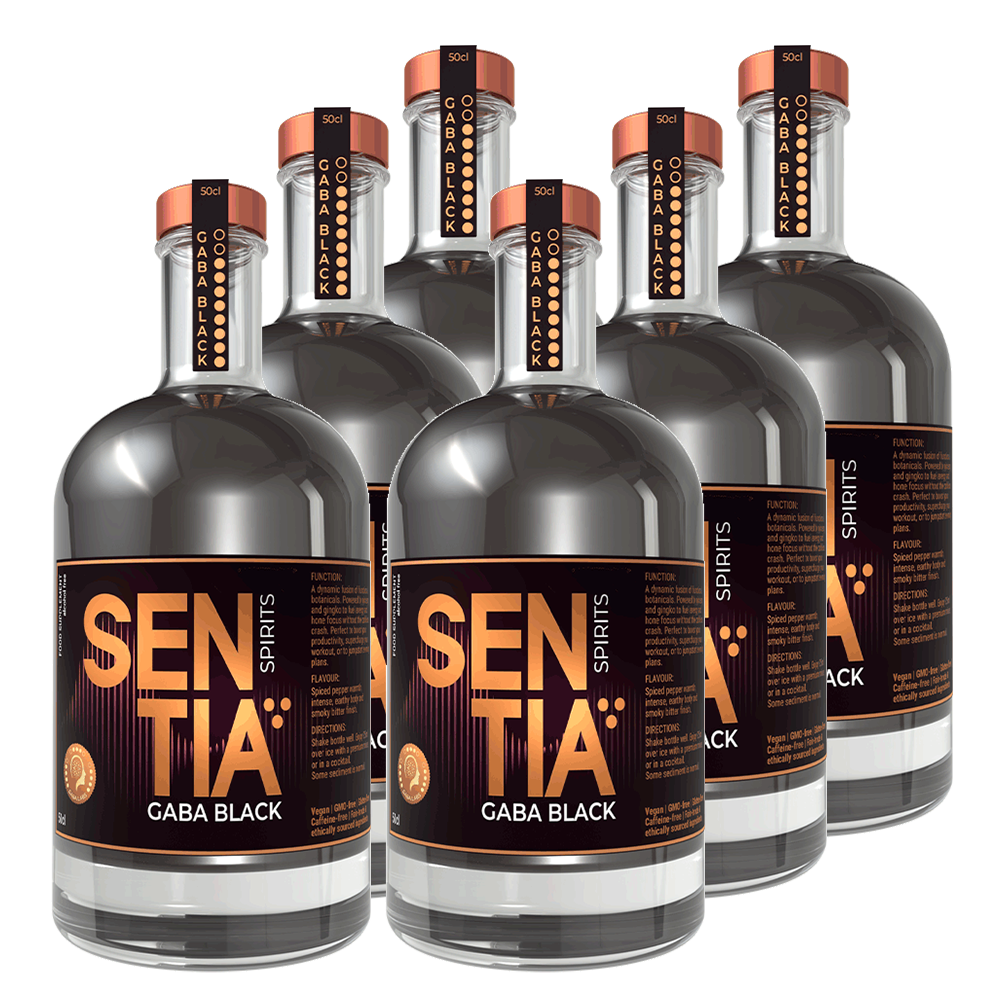
GABA Labs & Sentia: my journey from brain science to human sociability
GABA Labs & Sentia: my journey from brain science to human sociability
Professor David Nutt FMedSci, Chief Scientist at GABA Labs & Sentia Spirits
A decade ago, when I became president of the British Neuroscience Association I was asked to write a piece on why brain research was such a vital part of science. Like many neuroscientists before and since, I started the article with the statement that the human brain was the most complex organ or system in the known universe.
Now ten years later I realise that I was wrong. Amazing as each person’s individual brain is in terms of its computing power (each one of our brains has a power equal to all the computers on earth today) it is dwarfed by a much more powerful and mighty system—human society—which has accumulated inputs from over 10 billion brains.
How did I come to this conclusion? In part it was realising that most of the progress we as a species have made over our short time on earth has been due to our shared knowledge, especially of agriculture, science and engineering, that underpins life as we know it. Each of our brains’ immense capabilities have been built on the insights, knowledge and achievements of hundreds of previous generations.
The other insight came from my work trying to develop an alternative to alcohol, so that the harms of this, by far the most prevalent drug used by humans, might be reduced. During that journey I have often been confronted by non-drinkers; some are sober people who used to drink and are now abstinent and others are those who for religious or other reasons have chosen never to drink. Both groups usually claim that alcohol is not necessary for human happiness, let alone survival, so why bother to replace it? Why not just eliminate it? That’s a fair question, but I believe that the better approach is to find a drink that replicates the positive prosocial benefits of alcohol without the harms. I will explain why I have come to this conclusion later, but first we should examine why banning alcohol or related drinks would be less than ideal.
Alcohol prohibition has been widely enacted for over 1000 years in many Muslim countries with a degree of success, though a proportion of these populations still drink. In the west alcohol prohibition was enacted by several countries in the 1920s, most notably the USA, in the social experiment of Alcohol Prohibition. It was a disaster. The public demand to continue social drinking led to the setting-up of (literally) underground bars (speakeasies) leading to bribery and corruption of local police forces so they wouldn’t enforce the law and instead protected the black market. Organised crime (especially the various American mafias) rapidly evolved to supply the underground market, and a new incorruptible police force “The Untouchables”—(now called the DEA or drug enforcement agency) was created to deal with them. Eventually after a decade of vast expense and extreme violence Prohibition was repealed and alcohol was publicly available again.
The great lengths to which people went to get alcohol in this period, including breaking the law on a massive scale, were not because they were dependent on alcohol and in withdrawal. It was because social drinking, whether in a bar or speakeasy, was an essential part of most people’s lives. The same is true today. The majority of people who drink alcohol do so because they enjoy it, not because they have to; alcohol is the leading social lubricant in our society.
Recently, alcohol’s role in the emergence of human society has been emphasised by the anthropologist-historian Edward Slingerland in his book Drunk! You may have heard of the theory proposed by Yuval Noah Harari, in his book Sapiens, that the move of humans from nomads to settled farmers growing cereal crops was a seminal event in human evolution. He suggests that wheat, grown for bread, colonised humans rather than the other way around. Once humans made static settlements to grow crops, they had time to interact with many more humans and together they developed language, writing, religion, and science and all the other foundations of culture and society.
Slingerland challenges Hariri’s thesis that cereal growing was about making bread, arguing that wheat was grown for the brewing of beer, and that beer drinking broke down social anxiety to allow different families and even different tribes to come together to spread knowledge culture and genetic diversity through out-breeding.
If he is right, then the drive for alcohol has underpinned the very foundations of human culture and has done so ever since in most societies. The majority of western couples gain knowledge and confidence with each other over alcohol-enabled social gatherings like dinner dates or parties. The fact that social events and especially parties are a key element in human society tells us that humans are social beings and want to engage with others. But for many, meeting with strangers is a source of anxiety and tension, which alcohol dissolves, letting conversations flow and laughter develop.
Bars and pubs were until recently the main site of alcohol sharing and so for centuries have been the hub around which social support has revolved. The rise of at-home non-social drinking has led to many of these venues closing and a negative impact on local cohesion. But bringing them back will be difficult given the growing desire of many, especially younger adults, to avoid the health harms of alcohol.
GABA Labs & Sentia Spirits aim to rekindle the prosocial role of alcohol in a safer fashion by developing functional alternative to alcohol like Sentia Red & Sentia Black. Functional alcohol alternatives promote sociability and conviviality, but with much reduced risks of drunkenness, aggression and other health harms intrinsically tied to alcohol. To achieve this goal, we intend to propose legislation be enacted in the UK to ensure that all licensed premises must stock a range of functional alcohol alternatives to allow consumers choice. One could go further and insist that all taxpayer funded events that serve alcohol should also serve functional drinks. These initiatives would have significantly social benefits as well as reducing the health harms from alcohol. Facilitating humans getting together in local groups around a reclaimed pub, club or bar would help local communities come back together after the dislocations of recession and COVID19. At a national and international level helping humans engage together more effectively can benefit society at large and help our beleaguered species continue to develop to its full potential. It’s the human tribe—not the individual brain—that powers our species.
If you’re interested in learning more about Professor Nutt’s work, check out his recent appearance on Dr Richard Miller’s Mind Body Health and Politics Podcast, follow David on X, or listen to the Drug Science Podcast. You can find David’s latest books on Alcohol, Cannabis, and Psychedelics here.





